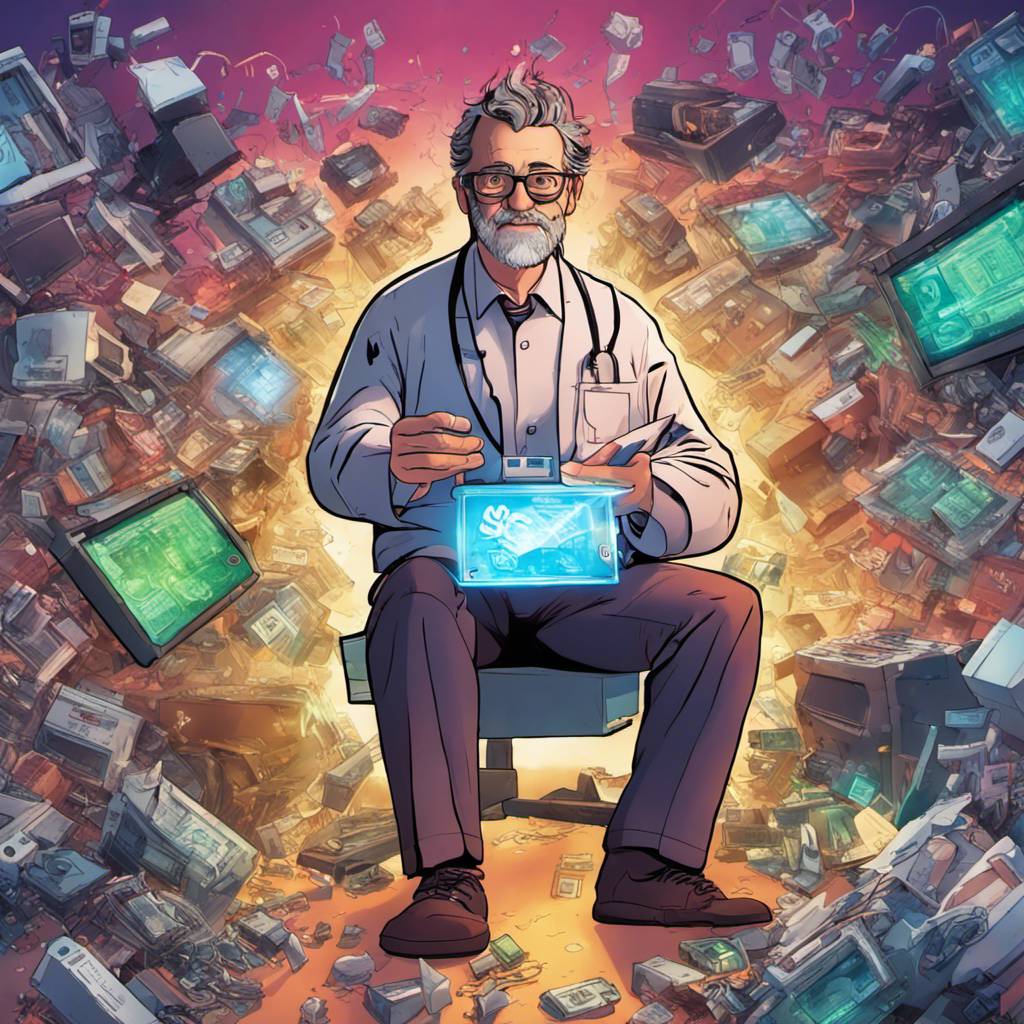In an ambitious bid to revolutionize the electronics industry, Professor Seokheun (Sean) Choi is spearheading a project aimed at developing electronic devices entirely out of paper. This groundbreaking initiative seeks to provide a sustainable, affordable and non-toxic alternative to the conventional silicon- and plastic-based components that currently dominate the sector.
Professor Choi’s vision is to combat the rapidly growing issue of electronic waste, or “e-waste”, which is a byproduct of our increasingly digital world. With the advent of disposable gadgets and single-use sensors, this problem is only set to worsen.
For several years, Professor Choi has been at the forefront of developing advanced biobatteries. These innovative power sources harness energy from bacteria or human sweat, and some have even been constructed using paper. Now, with a generous $400,000 grant from the National Science Foundation, Professor Choi is set to take this concept even further. His aim? To create integrated papertronics.
Since joining Binghamton University, this marks Professor Choi’s ninth federal grant – seven from the National Science Foundation and two from the Office of Naval Research. The primary objective of this three-year award is to develop high-performance, multilayered circuit boards using densely concentrated, highly conductive metallic wires. These will be printed directly onto paper and integrated with flexible paper-based components.
The concept of fully paper-based electronics is a pioneering one, and it was this novelty that piqued the interest of the National Science Foundation. As Professor Choi, a faculty member in the Thomas J. Watson College of Engineering and Applied Science’s Department of Electrical and Computer Engineering, explains, “All previous work with paper-based printed circuit boards had to use off-the-shelf electronic components. We want to replace those components with paper-based capacitors, registers and transistors.”
The potential benefits of papertronics are manifold. Beyond their biodegradability, they also offer flexibility. In a world increasingly connected by the Internet of Things (IoT), it’s predicted that by 2035 there will be over 1 trillion electronic devices globally. Traditional manufacturing methods would result in millions of tons of e-waste, posing a significant environmental threat.
Drawing on years of research and expertise in biobatteries and self-powered, paper-based biosensors, Professor Choi believes that his team at Binghamton’s Bioelectronics and Microsystems Lab can elevate papertronics to new heights. He envisions a green and renewable electronic system as the future of the electronics industry.
However, challenges lie ahead. Finding non-toxic materials that are both effective and environmentally friendly will be a key hurdle to overcome. As Professor Choi acknowledges, “With our previous work, we wanted to develop papertronic components — that was our focus, and we used toxic materials or whatever worked. But now, I’d like to use biodegradable materials to create even the small components as well.”
The development of paper-based electronics could mark a paradigm shift in the electronics industry. While we are still some way from seeing these devices on the shelves of our local electronics stores, the potential for a more sustainable future for electronics is an exciting prospect. As consumers become more conscious of their environmental footprint, innovations like these could become increasingly important in shaping our digital world.
